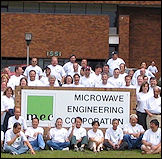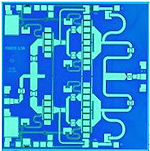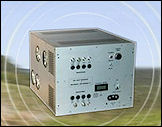 On Monday we talked about the lump of coal the Directorate of Defense Trade Control (“DDTC”) is delivering to export lawyers for Christmas in the proposed new brokering rules that appear to require export lawyers to register as brokers and to get permission from DDTC to provide certain legal services to their clients. But the difficulties don’t stop there and extend to something of even more concern to exporters: their employees. Under the proposed rules, your employees are brokers, and all part-time and many full-time employees will all need to be registered as brokers, and you may need to get prior approval from DDTC before many of them can work on export projects.
On Monday we talked about the lump of coal the Directorate of Defense Trade Control (“DDTC”) is delivering to export lawyers for Christmas in the proposed new brokering rules that appear to require export lawyers to register as brokers and to get permission from DDTC to provide certain legal services to their clients. But the difficulties don’t stop there and extend to something of even more concern to exporters: their employees. Under the proposed rules, your employees are brokers, and all part-time and many full-time employees will all need to be registered as brokers, and you may need to get prior approval from DDTC before many of them can work on export projects.
Employees are not considered brokers under the current rules because the rules make clear that brokers are persons that provide brokering activities “as an agent for others.” Even under the absurdist position taken by certain DDTC employees that a subsidiary acting for a parent is acting “for others,” there was never even a peep from the agency that an employee working for a company might be working “for others” even though the employee and the company were legally distinct entities.
The new definition eliminates the requirement that a brokering activity be as “an agent for others.” It simply states:
Broker means any person (as defined by § 120.14 of this subchapter) who engages in brokering activities.
And brokering activities are simply defined as:
any action to facilitate the manufacture, export, reexport, import, transfer, or retransfer of a defense article or defense service.
The new section 129.2(e) provides some exemptions from the definition of brokering activities but the only “employees” exempted are U.S. government employees. The new section 129.2(e)(3) exempts certain clerical and administrative tasks from brokering activities and would cover some clerical and administrative employees.
There is also an exemption of sorts for employees in the proposed section 129.3(b)(3) which states that “bona fide and full-time regular employees” of manufacturers registered under Part 122 of the ITAR (as manufacturers) are exempt from the requirement of registration and prior approval in two situations. This exemption does not cover part-time employees and does not clearly cover temporary employees working a full-time schedule.
The two conditions may also be problematic for full-time employees. Those conditions to exemption from registration and prior approval are:
brokering activities [which] (A) involve only such registered persons’ defense articles or defense services that are currently subject to an export approval under this subchapter obtained by the part 122 registrant or will require such an approval prior to their export, or (B) are on behalf of the part 122 registrant and involve only defense articles and defense services that are located and obtained from a manufacturer or source in the United States for export outside the United States under an export approval under this subchapter.
Both of these conditions require a prior export license, meaning that even full-time employees will need to be separately registered and obtain prior approval to work on the item to be exported if that work occurs prior to obtaining an export license.
What these convoluted new regulations mean are that non-clerical part-time and full-time employees working on items not yet approved for export will need to register and to obtain prior approval their employment by DDTC unless their involvement with exports fits within the narrow exemptions in the new section 129.7, which I discussed on Monday — e.g., NATO+4 only, FMS and non-SME equipment for foreign governments.
If this regulation stands as written, many manufacturers of defense articles might seriously consider whether it would be safer and easier for them to switch their production facilities to making some item over which DDTC has no arguable jurisdiction whatsoever, such as malted milk balls or shower curtain rings.
As a reminder, comments are due on February 17, 2012.
 Rudolf Cheung, who is the head of the Research & Development department of Microwave Engineering Corporation in North Andover, Massachusetts, pleaded guilty on January 20, 2012, to charges that he violated the Arms Export Control Act in connection with unlicensed exports of military antennae to Singapore. A copy of the criminal information detailing the charges can be found here.
Rudolf Cheung, who is the head of the Research & Development department of Microwave Engineering Corporation in North Andover, Massachusetts, pleaded guilty on January 20, 2012, to charges that he violated the Arms Export Control Act in connection with unlicensed exports of military antennae to Singapore. A copy of the criminal information detailing the charges can be found here.
 Posted by
Posted by  Category:
Category: 

 In a
In a  Law students always chuckle at forfeiture cases because they have the best names, such as United States v. 3,462 Cans of Tuna Fish or the like. It always seemed so unfair to those cans of tuna to have the entire juridical apparatus and force of the United States arrayed against them. Poor cans!
Law students always chuckle at forfeiture cases because they have the best names, such as United States v. 3,462 Cans of Tuna Fish or the like. It always seemed so unfair to those cans of tuna to have the entire juridical apparatus and force of the United States arrayed against them. Poor cans! Another problem with the arms brokering regulations proposed by the Directorate of Defense Trade Controls (“DDTC”) is their jurisdictional scope, which is impossibly vague and far exceeds the scope of permissible regulation under the Brokering Amendment which was passed by Congress and which permitted DDTC regulation of arms brokers in the first place.
Another problem with the arms brokering regulations proposed by the Directorate of Defense Trade Controls (“DDTC”) is their jurisdictional scope, which is impossibly vague and far exceeds the scope of permissible regulation under the Brokering Amendment which was passed by Congress and which permitted DDTC regulation of arms brokers in the first place. On Monday we
On Monday we 

